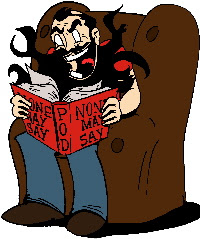PLOT
Jude Barnes is nearing forty. His music career has gone nowhere, his trust fund is almost depleted, and Rachel, his wife, thinks that it's time for him to get a "real" job.
But Jude has just met Nerfertiti. Nefertiti can sing. Her talent could even push Jude's little bar band into the big leagues. If Jude can convince her to stay with the band. And if Jude wants to stay himself.
MY TAKE
Jude Barnes is kind of a jerk. And that's what makes Bass Desires interesting.
DJ Lufkin is a proficient writer, and Bass Desires is an enjoyable read with a brisk narrative flow. The problem is that the reader can predict the entire plot from the back cover blurb. A beleaguered hero, searching for that one last chance to fulfill his dreams, will overcome both his materialistic wife and a soul-numbing white-collar career opportunity to find musical, spiritual and maybe even romantic fulfillment with a new muse. And so the novel goes. Indeed, Jude and Nefertiti's relationship, while well written, is the least involving part of the tale.
However, Lufkin has an uncommon and welcome perspective on Jude's relationship with Rachel. Jude is not a wholly sympathetic hero: he has cheated on his wife in the past, and seems a bit too willing to do it again. Nor is Rachel wholly unsympathetic: Lufkin displays some empathy, or at least understanding, for her desire to live a more comfortable life after struggling through years of Jude's pursuit of a music career (and other women).
Perhaps most interesting is Jude's response when Rachel forces him to attend a motivational seminar. The speaker advises that sometimes one has to place one's own dreams above all else, even if it means leaving other people behind. Jude is disdainful of this trite aphorism, recognizing that it justifies both Rachel's desire to move into middle-class respectability and his own desire to continue to pursue his musical goals. In other words, it solves absolutely nothing. But at the same time, Jude seems to understand that his desires are not better than Rachel's, just different. He has sympathy for Rachel even as he chooses to pursue his own wants and objectives and their relationship teeters on collapse, a tension that persists to the end of the novel.
Or rather, I think that tension exists. To be honest, the shadings are subtle. I wonder if I'm seeing things that aren't there. Despite what I've said, Lufkin still portrays Rachel as a bit too shrewish. And he stacks the deck against Jude's potential new career as an investment advisor by not only making his workplace stressful and boring but also outright corrupt, which makes Jude's choice to reject that lifestyle much less interesting. Moreover, Lufkin doesn't really explore the difficult question of whether, at some point as the years fly past, it becomes unreasonable to continue to devote all of one's time to pursuing an artistic dream.
To the extent I'm correct about Lufkin's intent, I appreciate his efforts at giving his characters depth and balance. But I wish he had gone a little bit further in that direction.
AVAILABILITY
Bass Desires is available in paperback for $14.95 from iUniverse or Amazon, or as an Adobe eBook (a restricted-use format that I adamantly oppose) for $6.00. DJ Lufkin has both a dedicated website and a MySpace page for the novel; however, neither provides any substantive content beyond advertising the book's existence.
BONUS RECOMMENDATION
Dreams don't always come true. Genuinely talented artists give up every day without achieving any recognition or success in their chosen field. I mourn the passing of Cubic Feet, a splendid powerpop band that never garnered much attention and, as far as I can tell, called it quits by 2002. Although the band is no more, all four of their albums remain available on CDBaby, including the exemplary Passenger in Time. Should CDBaby ever sell out its stock, three of the four albums (including Passenger in Time) are also available at iTunes, albeit encrusted with iTunes DRM (which, as I've mentioned before, drives me crazy). Unfortunately, Cubic Feet's albums are not available for download at either of the non-DRM legal download sites I frequent (eMusic and MP3tunes).

